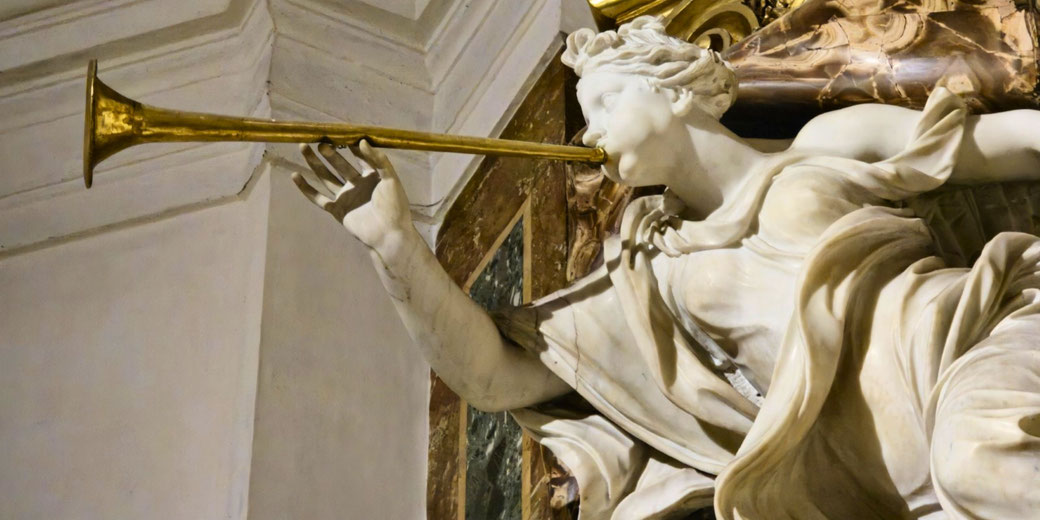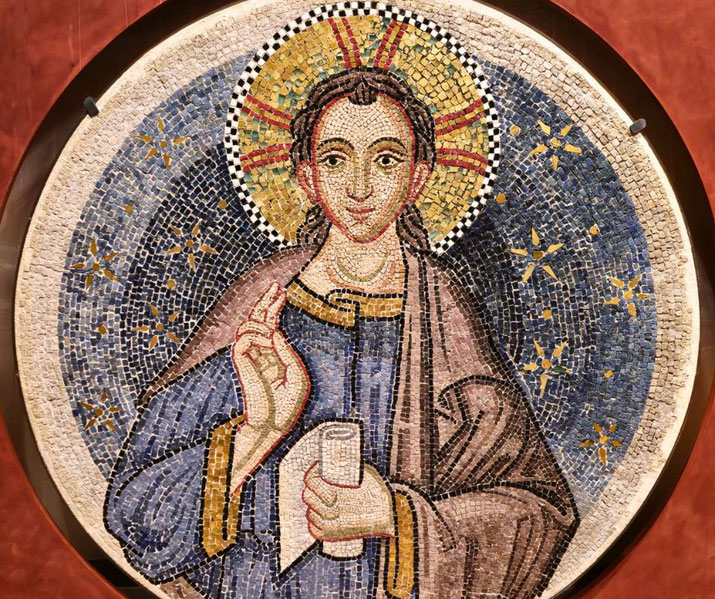The Council of Nicaea and the battle for the soul of Christianity

During the reign of Constantine the Great, a theological crisis erupted that threatened to split the Christian Church over doctrinal disagreements.
Constantine summoned the first church-wide council in 325 AD to the city of Nicaea because the controversy had centred on whether Christ was divine and had reached such intensity that it provoked riots, caused bitter rivalries between bishops, and weakened imperial peace.
There, bishops would argue over the most urgent question in the Christian world: was Jesus Christ truly God, or was he created like all other beings?
Roman Empire and Christianity
At the beginning of the third century, the Roman state viewed Christianity with hostility, since its followers refused to honour the gods or make sacrifices for the emperor’s well-being.
Public religion had been a civic duty, and Christians’ refusal to participate led to accusations of atheism and treason.
Periodic persecutions under emperors such as Decius and Valerian aimed to restore social cohesion by punishing those who rejected state religion.
By the time of Diocletian, who ruled from 284 to 305, this hostility had reached its peak when he ordered the destruction of churches, the burning of scriptures, and the imprisonment of clergy across the empire.
Shortly afterwards, Constantine rose to power after he had defeated his rivals during a series of civil wars.
After his victory at the Battle of the Milvian Bridge in 312, he claimed to have received divine assistance through a vision of the Christian symbol of the Chi-Rho.
In 313, he had co-authored the Edict of Milan with Licinius, which officially ended the persecution of Christians and allowed Christians to worship legally across the empire.
Christian bishops obtained new legal rights, churches received support from the emperor, and Christian influence at court probably increased rapidly.
Over time, Constantine began to favour Christianity as a personal belief system and used it as a tool of unity across his extensive empire.
Disagreements among bishops, however, made this unity difficult. As different Christian leaders advanced conflicting interpretations of the faith, Constantine realised that doctrinal divisions threatened the peace he had fought to secure.
Therefore, he treated religious disputes as political problems and brought them under his personal supervision, as he feared that religious division might fragment the internal stability of an empire he had only just reunited.
Early Christian Controversies
Soon after Constantine had secured his power, a theological dispute in Egypt began to spread across the empire.
In 318 AD, a priest named Arius first publicly taught in Alexandria that the Son of God had a beginning.
He claimed that the Son had been created out of nothing by the Father and therefore could not be eternal or of equal substance.
For Arius, the Son remained divine in a lesser sense, but the Father alone was without origin.
He supported his argument with several Bible passages, such as Proverbs 8:22, which he interpreted to mean the Son had been created before all other creatures.
Opponents of Arius, led by Bishop Alexander of Alexandria and his deacon Athanasius, condemned his views as a denial of Christ’s true divinity.
They argued that salvation required a redeemer who was fully God, not a created being.
According to them, Arius threatened to dismantle the core of the Christian faith and reduce Christ to a creature, however exalted.
As the controversy grew, it spread to other regions, with bishops, clergy, and laypeople choosing sides, and violence erupted in cities as churches divided, and attempts to impose local solutions failed.
Eventually, Constantine intervened and had sent Hosius of Corduba, a senior bishop from Hispania and his trusted adviser, to look into and calm the conflict.
But with no clear way to settle the issue regionally, Constantine summoned bishops to Nicaea to resolve the matter publicly.
The important participants
In June 325, bishops from across the empire gathered at Nicaea, which was a city in Bithynia close to Constantine's eastern capital at Nicomedia.
Most probably came from the eastern provinces, but several travelled from as far as Spain, North Africa, and Gaul.
Some later accounts claimed that a bishop from Britain may also have attended, though this is still uncertain.
The gathering included many who had survived persecution only a decade earlier.
Later accounts suggest that between 220 and 318 bishops were probably present and that they were accompanied by over a thousand assistants and clerics.
Among them were figures who were central to the debate: Alexander of Alexandria, Athanasius, Eusebius of Nicomedia, and Eusebius of Caesarea.
Constantine was dressed in ceremonial robes and wore imperial jewellery when he opened the council.
He, who was not baptised at the time, identified as a Christian and claimed to act as a peacemaker, not a theologian.
He urged the bishops to restore harmony and declared that division within the Church endangered both spiritual health and political order.
The presence of the emperor indicated that at least some of the council's decisions, which concerned heresy, would receive imperial backing, though others were not always applied.
Initially, the agenda focused on resolving the Arian controversy, but other matters quickly followed.
The council addressed the calculation of Easter, since different communities observed the feast on different dates, and it examined the Meletian schism in Egypt, which involved disputes over ordinations performed without proper episcopal approval and the treatment of clergy who had lapsed during persecution.
It also issued rulings on the conduct of bishops, ordination procedures, and clerical celibacy.
As a result, Nicaea became a council for theological debate and the first attempt to standardise Christian practice across the empire.
The proceedings were conducted in Greek, which influenced how key theological terms, including homoousios, were understood and debated.
Major Outcomes and Decisions
After weeks of heated debate, the council rejected Arianism and issued a formal statement of belief known as the Nicene Creed.
The most critical line declared the Son to be “begotten and consubstantial (homoousios) with the Father”, a formulation that explicitly rejected any claim that the Son had been made.”
By using homoousios, a Greek term which meant “of the same substance,” the bishops aimed to close the door to any interpretation that would make the Son inferior or created.
Even so, some bishops hesitated to endorse the term due to its previous association with Sabellianism, which had blurred the distinction between the Father and the Son.
Nevertheless, the Creed stated: “We believe in one Lord, Jesus Christ, the Son of God, begotten of the Father, Light from Light, true God from true God, begotten, not made…”
Arius, who was accompanied by his supporters Theonas and Secundus, refused to sign and was exiled by Constantine.
The emperor ordered their writings to be burned and declared possession of them a crime punishable by death.
Although Eusebius of Nicomedia had initially resisted, he eventually signed under pressure.
Most bishops reportedly also signed the creed, some of whom did so out of conviction and others of whom signed under significant political pressure from the imperial court rather than by legal force.
Athanasius, though still a deacon, won fame for his defence of the creed and would later become Bishop of Alexandria.
The creed was accompanied by formal condemnations that stated anyone who claimed "there was a time when the Son was not," or that "he was of another substance or essence," would be condemned.
Alongside doctrinal decisions, the council ruled on matters of discipline and administration.
It confirmed the authority of the bishops of Rome, Alexandria, and Antioch and gave them jurisdiction over nearby provinces.
It banned self-castration among clergy, a practice that had emerged in some strict religious groups, while it also ruled that those who had abandoned the faith during persecution could return to clerical office if they repented.
It also ordered that Easter should generally be celebrated on the same Sunday by all churches, separate from the Jewish Passover, but disagreement about how to calculate that date would continue for decades.
Importantly, the council did not end the Arian crisis. Although Constantine had initially enforced the creed, he later allowed Arius to return from exile.
In 336, just before his death, Constantine was baptised by Eusebius of Nicomedia, an Arian sympathiser.
Within a few years, the empire once again divided along theological lines, apparently because Eusebius had regained imperial favour and persuaded the emperor to restore Arian supporters to favour.
Athanasius was now bishop and faced repeated exiles for refusing to readmit Arians.
Successive emperors would alternate between supporting Nicene and Arian positions, showing that the Council’s decisions, though doctrinally firm, did not hold politically.

Why the council still matters today
By creating a creed that defined the relationship between the Father and the Son, the Council of Nicaea established the framework for Trinitarian doctrine that has influenced Christian theology ever since.
The Nicene Creed was later expanded at the Council of Constantinople in 381 and became the central confession of faith for most Christian denominations.
It declared what Christians believed and what they rejected, and it established a clear line between orthodoxy and heresy.
The council also introduced a new way of resolving doctrinal conflict, as disputes would largely no longer remain local or informal.
Instead, bishops would meet, debate, and issue formal creeds with the support of the emperor.
This model of a church-wide council became the norm for settling future controversies, including those at Ephesus, Chalcedon, and Constantinople.
It showed that clear doctrine needed institutional backing and that unity depended on shared belief.
Today, many churches across the world continue to recite the Nicene Creed in their church services, which include phrases that were first debated under Constantine’s supervision.
The creed's survival showed several reasons apart from its theological claims. It showed that leaders wanted a shared foundation to unite a divided church, state the faith in clear terms, and prevent truth from being rewritten to suit political or local interests.
The Council of Nicaea was centuries distant and still speaks to those same tensions within Christian life.
What do you need help with?
Download ready-to-use digital learning resources
Copyright © History Skills 2014-2025.
Contact via email
With the exception of links to external sites, some historical sources and extracts from specific publications, all content on this website is copyrighted by History Skills. This content may not be copied, republished or redistributed without written permission from the website creator. Please use the Contact page to obtain relevant permission.





